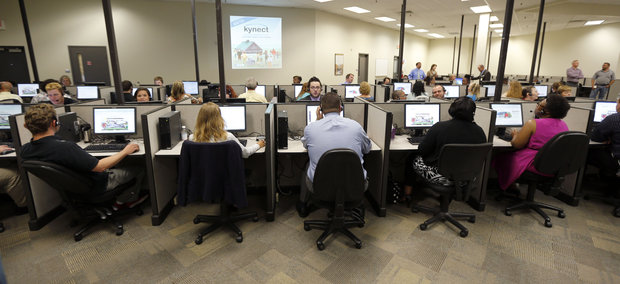
No one likes the idea of having to call a call center to get the problem resolved. But consider the person on the other end of the phone, probably working an eight to twelve hour shift, with minimal interaction, and almost certainly, a minimal wage. Call-taking isn’t an easy job, but it is a necessity in the world in which we live.
Laura Donovan for attn.com interviewed some call-takers to get the other side of the story. Here’s what some of them said about their long days, the benefits and the cons.
“We were listening to random calls as a team and my department manager deciding to join … The customer was so rude and condescending that I shut down and just gave one word answers like yep, nope, etc. I’ll admit it wasn’t the best customer service but this guy was straight rude. My department manager leaves the room, contacts the customer, and tells him I was out of line, and she apologized for my behavior. I was so upset and all I could was cry. It made me realize no matter how bad the customer is on the other line I have to keep my ‘A’ game intact to survive the call center life and not take everything so personal.” – Alyssa
There is a constant challenge to listen and help the abusive caller while keeping personal morals intact. Dawn, an anonymous call taker, quit her job only weeks after starting it when she “felt bad selling [the elderly] online credit cards they probably wouldn’t use.”
Forest explains the world of a call-taker as difficult. “It’s hard thankless work. For sales queues, the commissions are typically crappy if they exist at all … It’s also a lonely job, because although you are talking to people all day, it’s never face to face, so that human interaction that many extroverted people crave is lacking to some degree. From a sales perspective, it is extremely difficult as so much is missed in terms of body language and other non-verbal signals that can help guide the conversation.”
According to those interviewed, call-taking isn’t a bad job. Rather, it’s more of a challenge, and one requiring patience and communication skills to de-escalate, more often than not, volatile and aggressive callers. No one wants to call that outbound number, but next time you do, spare a thought for the person on the other end of the phone.
This Article (The Life of a Call-taker) is free and open source. You have permission to republish this article under a Creative Commons license with attribution to the author and AnonHQ.com.





I was actually interested in this article, however I feel it is not even remotely scratching the surface. This should and could have been done much better and much deeper if a little more research was done, since the topic is already brought up. For once do not throw inbound people and outbound people in one pot, just because both of them sit on the phone, does not mean they do the same job. While the inbound person really only complains about rude customers calling in, because something isnt working the way it’s supposed to work, or an order hasn’t arrived, the outbound person does not just have the pressure to sell crap nobody needs or wants, to elderly or non native language speakers, they also have to deal with all the rude people, on top of the pressure of making XY amount of calls today and YX amount of that better be successful or you can pack your shit.
I am certain there are worse jobs out there, but if I have the choice, I will never set foot into a call-center.